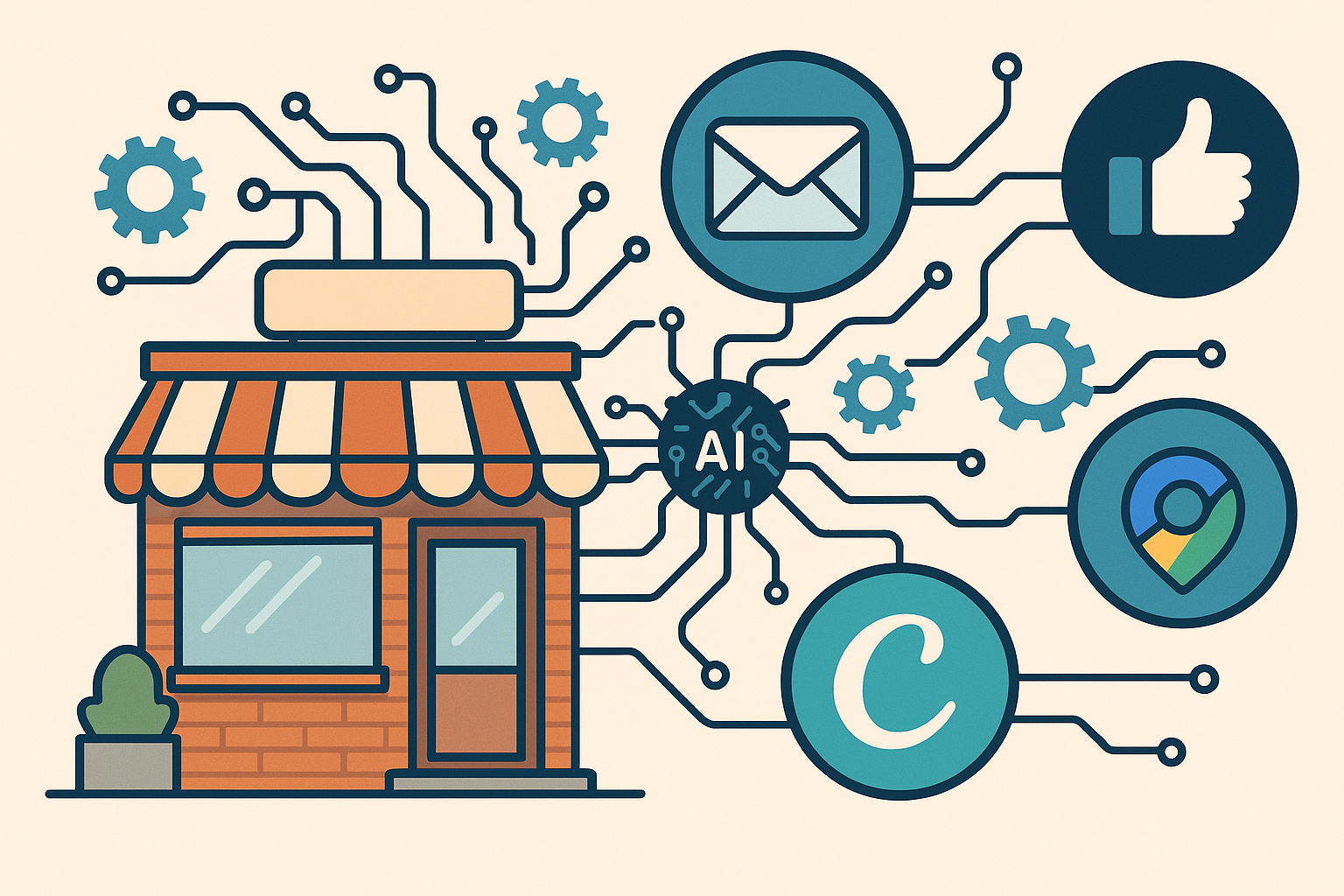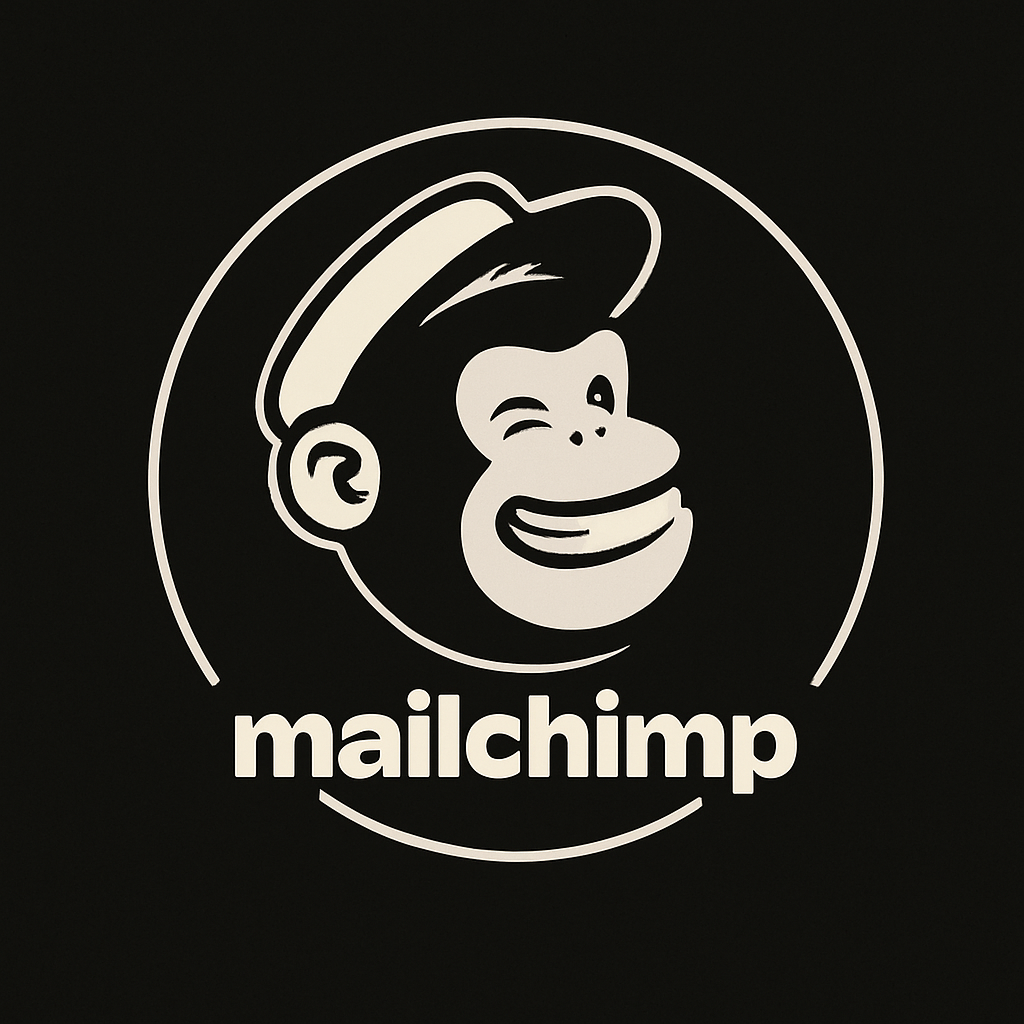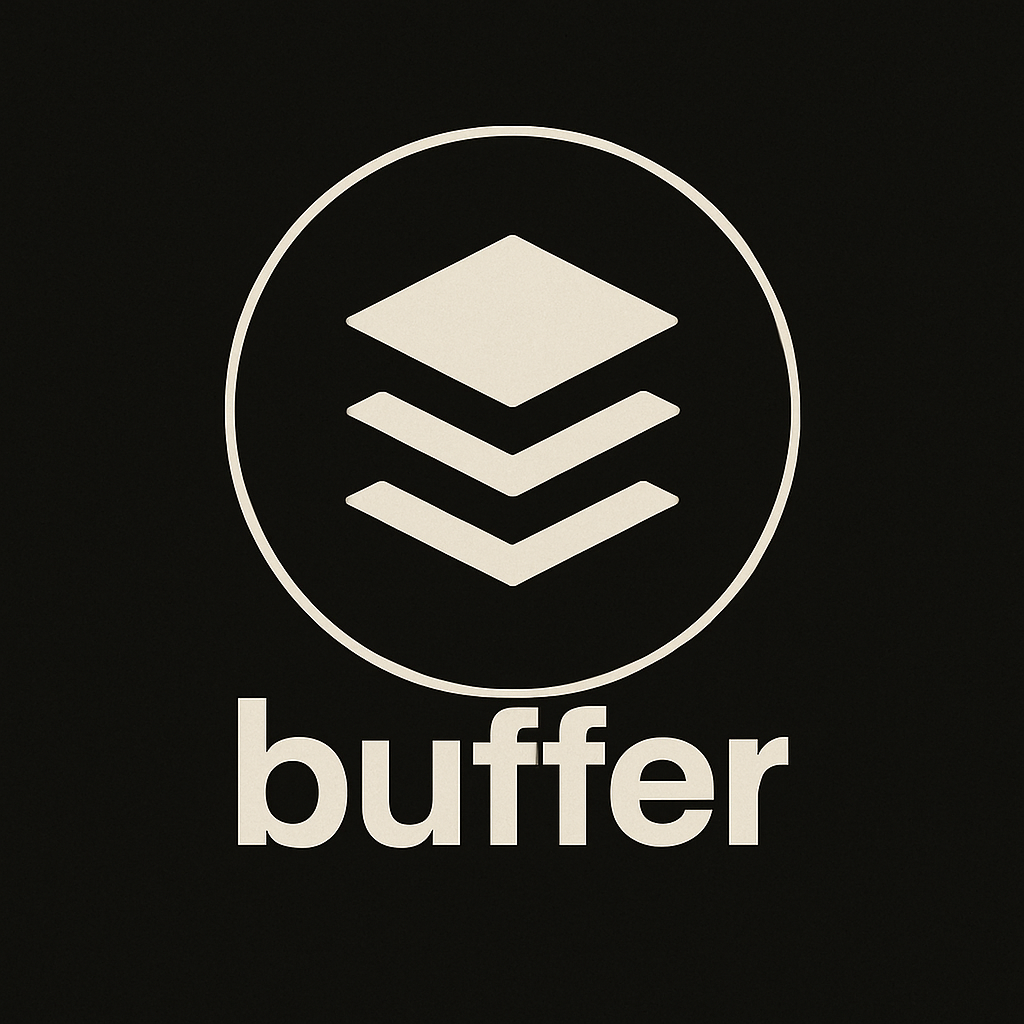Building Your Own Automated Marketing System with Agentic AI for Denver Small Businesses in 2025
Discover how Denver small businesses can leverage agentic AI to automate their marketing efforts. This guide walks you through setting up essential platforms like Mailchimp, Buffer, Canva, and Google My Business, laying the groundwork for a smarter, more efficient marketing system in 2025.
Welcome to the first post in our series on agentic AI for Denver small businesses! I’m Benjamin Blair, a 20+ year marketing veteran who’s passionate about helping local businesses thrive. Today, we’ll set up profiles on key platforms to prepare for automated marketing with agentic AI. Don’t worry—you can absolutely handle these steps yourself, even if you’re new to tech. Let’s get started!
Why Start Here?
Setting up profiles on the right platforms is the foundation for automating your marketing. These accounts will later connect to agentic AI tools that handle tasks like scheduling and personalization, saving you time while growing your Denver business.
The Platforms You’ll Need
We’ll use four free tools that are perfect for small businesses and ready for AI integration:
Mailchimp: For email marketing with AI-driven features.
Buffer: To schedule social media posts across platforms.
Canva: For creating visuals with AI assistance.
Google My Business (GMB): To boost your local presence in Denver.
You can set up all these profiles in under an hour—let’s walk through the steps together.
Step-by-Step Setup Guide
1. Mailchimp (Email Marketing)
Mailchimp’s free plan lets you manage contacts and send emails with AI help (e.g., optimizing send times). Here’s how to start:
Go to mailchimp.com and sign up with your email (e.g., yourbusiness@gmail.com).
Create a list called “Denver Customers” and add a few contacts (e.g., from your phone).
You can set this up in 10 minutes—I promise you’ve got this!
Buffer is a super handy social media management tool designed to help individuals, creators, and small businesses streamline their online presence. With Buffer, you can schedule posts across various platforms like Instagram, Facebook, LinkedIn, X (formerly Twitter), Pinterest, Threads, and even YouTube.
2. Buffer (Social Media Scheduling)
Buffer lets you schedule posts for up to 3 social accounts (e.g., X, LinkedIn, Instagram). It also has AI to suggest post times.
Visit buffer.com and sign up for the free plan.
Connect your social accounts (e.g., your X handle @yourbusiness).
Schedule your first post (e.g., “Excited to grow my Denver business!”).
You’re capable of this—it’s quick and straightforward!
3. Canva (Content Creation)
Canva’s free plan includes AI tools like Magic Design to create stunning graphics for your posts.
Head to canva.com and create a free account.
Search for “Social Media Post” and use the AI to generate a design (e.g., “Denver Sale!”).
Download your design—you can do this easily in minutes!
4. Google My Business (Local SEO)
Google My Business helps Denver customers find you, with AI insights to improve your profile.
Go to business.google.com and claim your business.
Add your Denver address, hours, and phone number.
You’ve got this—it’s a simple way to boost local visibility!
Download Detailed Guides
Need more help? I’ve created detailed guides for each platform, with step-by-step instructions to ensure you succeed. Download them below:
These guides walk you through every click, so you can set up with confidence.
What’s Next?
Now that your profiles are ready, our next post will show you how to connect these platforms to agentic AI for automation—think automated emails, scheduled posts, and more! Stay tuned for the rest of the series, and let me know how this setup goes for you in the comments or on LinkedIn.
Let’s keep growing your Denver business together!
Agentic AI for Small Businesses: Revolutionizing Marketing in 2025
Unlike traditional AI, which needs constant human input (like chatbots answering FAQs), agentic AI works independently to achieve goals. It’s like a marketing manager who analyzes data, decides, and acts in real-time.
Running a small business in Denver is tough. Between serving customers, managing inventory, and balancing the books, marketing often falls behind. But what if you could automate personalized emails, craft social posts, and optimize ads without a big team? Enter agentic AI, a game-changer for small business marketing in 2025. In this first post of my Agentic AI for Small Businesses series, I’ll explain what agentic AI is, why it’s a must-have, and share tools to get started. (Disclosure: This post contains affiliate links, which may earn me a commission at no extra cost to you.)
What is Agentic AI?
Unlike traditional AI, which needs constant human input (like chatbots answering FAQs), agentic AI works independently to achieve goals. It’s like a marketing manager who analyzes data, decides, and acts in real-time. For a Denver coffee shop, agentic AI could:
Send tailored email offers based on past purchases.
Adjust Instagram ads to target locals searching “coffee near me.”
Optimize blog posts for Google rankings.
Agentic AI is autonomous, adaptive, and results-driven. Salesforce predicts 75% of retailers will rely on it by 2026. For small businesses, it’s a budget-friendly way to compete with bigger players.
Why Small Businesses Need Agentic AI
With over 20 years in marketing, I’ve helped small businesses tackle time-consuming tasks like email campaigns and PPC ads. Agentic AI changes the game by:
Saving Time: Automate scheduling posts or analyzing ad performance.
Personalizing at Scale: Craft messages for individual customers, boosting engagement (36% of marketers use AI for this, per Sitecore).
Maximizing ROI: Focus ad spend and content on what works.
Staying Competitive: Keep up with trends without a big budget.
Imagine a Denver boutique using agentic AI to email “20% off” to customers who browsed coats, while tweaking Google Ads for “Denver fashion.” That’s agentic AI in action.
Top Agentic AI Tools for Small Businesses
Here are four tools to kickstart your AI marketing, with affiliate links where available:
Jasper.ai (Try Jasper): This AI creates blog posts, ad copy, and social content fast. It suggests topics and optimizes for SEO, ideal for a Denver bakery blogging about “gluten-free treats.” Pricing: $49/month after a 7-day trial.
HubSpot (Join HubSpot): HubSpot’s AI automates emails, lead scoring, and CRM. Perfect for a local gym targeting “New Year’s fitness” sign-ups. Pricing: Free tier; paid from $20/month. (Pending affiliate approval)
Mailchimp (Start with Mailchimp): Automate email campaigns with AI-driven insights. A Denver consultancy could nurture leads with welcome emails. Pricing: Free tier; paid from $13/month.
Canva (Design with Canva): Create AI-assisted social graphics and ads. A restaurant could design “Taco Tuesday” posts in minutes. Pricing: Free tier; Pro from $12.99/month.
Note: Test tools to find the best fit. I’ve used these to scale businesses by $11.6M, and they’re small-business-friendly.
How to Get Started
Ready to dive in? Here’s how:
Pick One Task: Start with email or social media for quick wins.
Choose a Tool: Try Mailchimp or Canva’s free tiers to test AI.
Set Goals: Aim for 10% more email opens or 5% higher ad clicks.
Track Results: Use tool analytics to refine campaigns (e.g., HubSpot’s reports).
Scale Up: Add tools for SEO, PPC, or content creation.
What’s Next?
Agentic AI lets you market smarter, not harder. My next post will explore agentic AI for email marketing, with tips to boost conversions. Subscribe to benindenver.com for updates, and comment below—how are you using AI in your business?
About the Author: R. Benjamin Blair is a Denver-based marketing expert with 20+ years driving growth for small businesses and B2B SaaS. Connect on LinkedIn or email rbenjaminblair@gmail.com.







